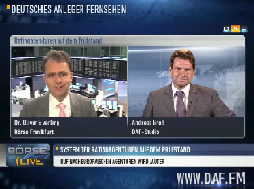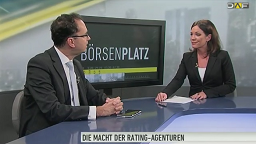« Meta-Cashflows der Commerzbank | Home | Liquiditätsrisiko im Fokus des Bankmanagements »
Rating Agencies�?? Timing Disconnect
Von Dr. Oliver Everling | 29.Mai 2008
There can be a time lag in rating changes, writes Rod Rumreich, Senior Advisor, Global Investment Advisors, Inc., Carlsbad, California, USA (www.gia-inc.com), in the GIA Bulletin. Agencies can change or confirm ratings some weeks or months after the receipt of financial and economic information owing to the time it takes to fully assess the implications of the information. Markets, on the other hand, tend to react rather promptly, although not always appropriately, to information, so there can be a „timing disconnect“ between the agencies and the bond market. In addition, there is a tendency for rating agencies to be slower to upgrade a bond than to downgrade one, believes Rumreich. This discrepancy is owing to the agencies‘ views of themselves as protecting investors against loss. Hence, there is more urgency in a downgrade than there is in an upgrade.
The market reacts to news more quickly than the agencies, observes Rumreich, but that does not mean the market better reflects the underlying default risk. Markets can move quickly, and sometimes disproportionately, on rumors, while the agencies try to look at underlying economic strength and verifiable facts. Even when agencies know what the market knows, there can be a built-in delay in any rating change since: (a) The agencies allow issuers to respond to their concerns and to present an update,. (b) The agencies do not want to be wrong or change the same rating repeatedly, so they proceed cautiously, and (c) The rating agencies have „watch lists“ which inform investors which ratings are under scrutiny for potential changes. In that way, investors have some sense that a rating may change in the near future, giving the agencies time to do a full examination.
Market pricing may reflect any number of factors other than ratings, says Rumreich, such as general sentiment about the health of the economy, the scarcity of new financings, and regulatory changes that impact the supply and demand for a specific security. At times, the market places less emphasis on credit quality and more emphasis on liquidity or yield. Also, a widely-recognized name in the market may benefit a borrower despite its rating. However, adds the Senior Advisor of Global Investment Advisors, Inc., the expectation remains that like-rated issues of similar maturity and coupon should trade at like prices, and higher-rated issues should sell at higher prices (provide lower yields). When they don’t, issuers would be wise to investigate and take action.
What is an issuer to do when the bond market says something different from the agencies when it clearly isn’t a result of timing differences or market imperfections? The first thing should be to note the degree of difference and the trend of the discrepancy, says Rumreich. The greater the discrepancy, the greater the call for action with the agencies – on both the upside and the downside. How to respond can vary widely based on any number of factors, according to Rumreich, including the current rating and its outlook, whether the market perception is better or worse than the agency perception of risk, plans for bond issuance, the frequency of trading of outstanding securities, the visibility of your name, and existing rating agency relations.
Themen: Nachrichten | Kommentare deaktiviert für Rating Agencies�?? Timing Disconnect
Kommentare geschlossen.
 Börse hören. Interviews zu aktuellen Ratingfragen im Börsen Radio Network. Hier klicken für alle Aufzeichnungen mit Dr. Oliver Everling seit 2006 als Podcasts.
Börse hören. Interviews zu aktuellen Ratingfragen im Börsen Radio Network. Hier klicken für alle Aufzeichnungen mit Dr. Oliver Everling seit 2006 als Podcasts.










